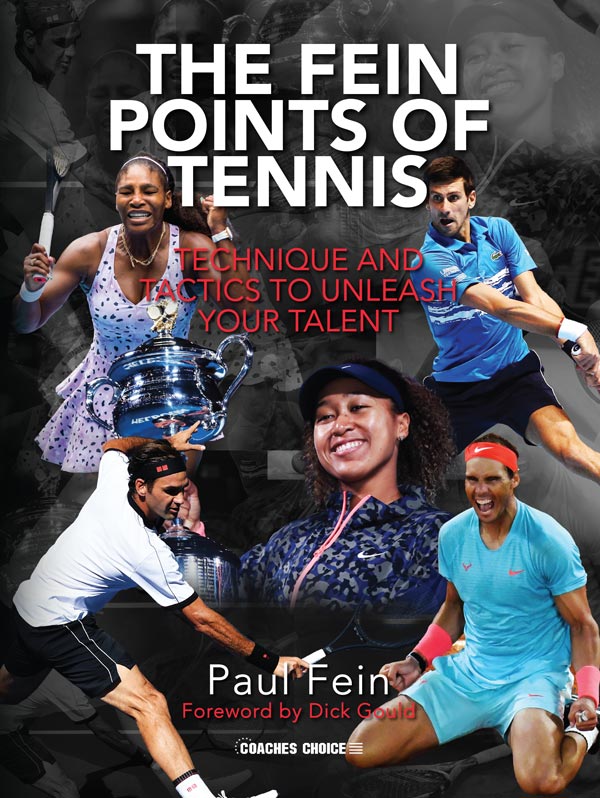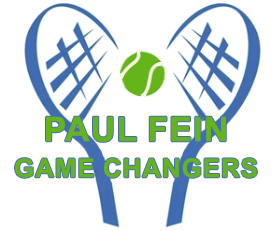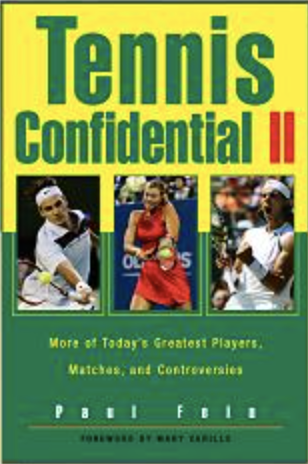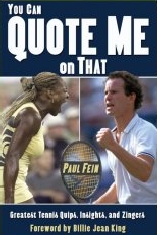The Curious Case of Daniil Medvedev
Hits: 57
When coaches and teaching pros project the ideal future playing style of a promising young prospect, they consider several factors: athletic ability, physique, character, and so forth. Of course, the player has to buy into the technique and tactics the coaches are trying to inculcate.

Historically, tall and strong players became power players, and small players relied more on consistency, speed, and tactics. However, this continuum includes plenty of smaller players with power and plenty of taller players with speed and marvelous defensive skills. Indeed, during the past 15 years, men’s tennis has soared to previously unimaginable heights with rocket serves and potent forehands, super-solid and aggressive backhands, terrific defense, and a resurgence in the use of touch shots. Although it’s harder nowadays to volley passing shots that are struck with tremendous power and often plenty of forehand topspin, the legendary Big Three and now Carlos Alcaraz volley well, too.
So where does Daniil Medvedev land on this offensive-defensive technique-tactics continuum? And what were his coaches thinking when they created his game?
The 6’6” Medvedev has been likened to a much taller version of 5’11” Lleyton Hewitt, a tenacious counterpuncher who won the 2001 US Open and 2002 Wimbledon against relatively weak opposition but steadily declined after that short peak. The lesson that Lleyton and his coaches never learned is that he never became more versatile and aggressive during this obvious decline. The moral was: always re-think and revamp a game that has plateaued because as the competition gets tougher, you’ll likely decline in the rankings.
Let’s review the 27-year-old Medvedev’s career and playing style. On the plus side, he won his only major at the 2021 US Open when he was fortunate to face a mentally and physically worn-out Novak Djokovic in the final. Daniil certainly played well, but the quest for a rare Grand Slam left Novak drained. Medvedev has also captured 20 singles titles, though, oddly enough, he’s never won any tournament twice. But, maybe it’s not so odd or hard to figure out after some analysis.
In the third set of Jannik Sinner’s revealing 7-6, 4-6, 6-3 victory over Medvedev in the Erste Bank Open final in Vienna, Tennis Channel’s astute Jimmy Arias noted, “Sinner is out-Medvedeving Medvedev.” It’s always a bad thing when an opponent is beating you at your own game.
That explained much but not all of the hard-hitting Sinner’s success. The increasingly versatile Italian won an impressive 18 of 26 points when he went to the net.
Despite his 6’6” height, Medvedev has a lower ceiling than Djokovic, Alcaraz, and Sinner, who lost to the Russian in their first six matches but has won the last two.
Medvedev’s relatively one-dimensional baseline game—often played from 3 to 10 feet behind the baseline—is relentlessly consistent. He also has a strong but not great first serve, and rates as the fastest super-tall (6’6” or taller) player in tennis history.
But those assets have taken him—and can take him—only so far. That’s because he has some major liabilities.
First, he’s a mediocre volleyer in terms of technique and instincts. Second, his touch shots are also mediocre. Third, his too-deep positioning leaves him vulnerable to drop shots and sharp angles. As Arias pointed out, “The way to beat Medvedev is to move him forward or wide.” Fourth, and very importantly, Medvedev lacks the stamina it takes to win long, grueling matches, especially five-setters at Grand Sam events. Indeed, during the third set against Sinner at an indoor tournament with a temperature about 70 degrees, Daniil was visibly exhausted.
Can Medvedev win another major?
Even if Djokovic declines or retires sooner than appears likely, Daniil must improve three career statistics: he’s a poor 4-9 in five-set matches, and he’s won only 50% of his tiebreakers. Surface is yet another problem for this mostly one-trick pony. Medvedev has won just one title each on clay and grass. He also must increase his stamina.
To accomplish all or even most of that, Medvedev must change tactics and improve his volleying technique enough to implement the new tactics. He must study videos of Roger Federer—yes Federer!—to learn how Fed pounced on all weak returns and short balls and sprinted to net and then put away volleys and overheads. In short, Daniil must improve his volley technique, split step, reflexes, positioning, balance, and anticipation.
That sounds like a tall order. But he and his coach Gilles Cervara, who has worked full-time with Daniil since the summer of 2017, must embrace the challenge and goal of changing a game that has clearly plateaued.
If Medvedev doesn’t become more versatile and aggressive, he’ll decline just as Hewitt did.



